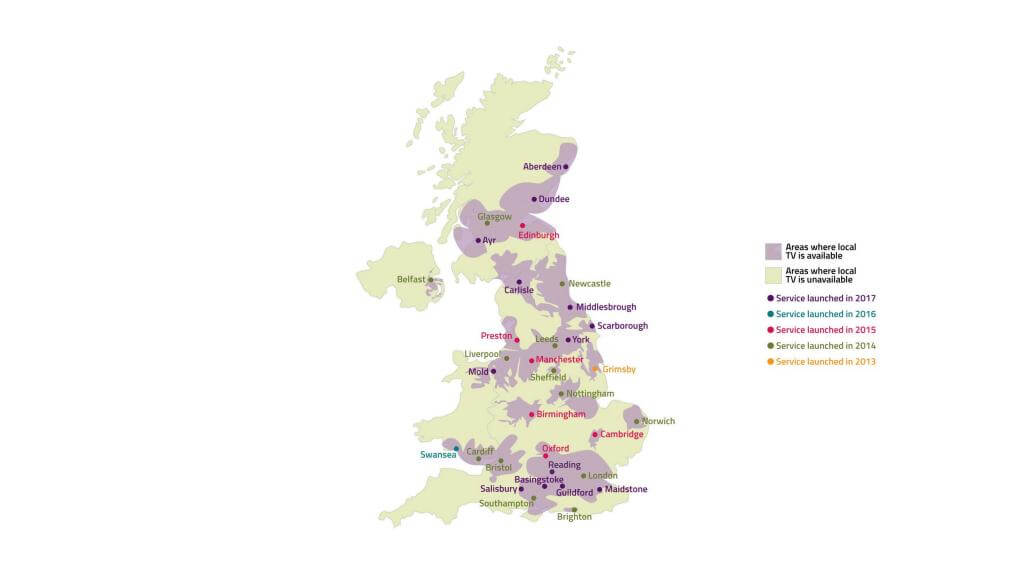UK broadcast regulator has written to local TV channel operators to remind them that local news must remain at the centre of their offering.
- Local channels have been increasingly sharing content, with local news relegated to a bare minimum.
- Ofcom has shared guidance on what it expects from local TV channels ahead of licence renewals next year.
- Regulator warns local channel operators renewal of their licences is not guaranteed.
Regulator Ofcom has called on local TV services to familiarise themselves with guidance designed to help them meet their programming commitments and best serve their audiences.
The guidance, issued Tuesday, is designed to remind local operators about their regulatory obligations as Ofcom decides whether or not to extend their broadcast licences.
34 local channels were launched under a scheme initiated under the Coalition Government a decade ago. Since the first local TV channel launched under the scheme in 2013, many channels have heavily reduced local programmes. Instead, the majority of services now carry a single schedule, with short opt-outs for local news, which may come from a studio outside of the broadcast area.
What are some local channels doing wrong?
Many local channels that operate in a chain schedule local news to run in a loop during the early hours. Ofcom’s guidance says the regulator does not consider it appropriate for broadcasters to meet their localness criteria by scheduling local news between midnight and 6am.
A 15 minute bulletin broadcast four times a day would meet the minimum requirement of an hour’s local news per day. But Ofcom isn’t happy about local broadcasters repeating the same bulletin. It’s guidance says local broadcasters can’t just rejig the running order between bulletins without adding sufficient new content.
Ofcom has also called on local TV operators to not just localise national stories, for example by asking people’s opinions on the streets of where the local TV channel is broadcast. It also says local TV channels shouldn’t try to localise national stories by just inserting a local town or city in the story.
Meanwhile, some channels have been broadcasting live streams of local radio content. Ofcom says this alone will not be enough to meet the channel’s commitment to broadcast local content.
Why is this relevant?
In return for providing local content, broadcasters are entitled to a prime top 10 position on the Freeview channel list.
Future licence renewals
Ofcom has been given powers to renew local TV broadcast licences beyond the end of 2025. But the regulator has strongly implied that extensions are not guaranteed.
Ofcom will in the coming months review the performance of each local TV service. It will only renew the licences if it’s satisfied the local channel will meet its regulatory obligations.
As a result, local TV operators have been put on notice to ensure local content is at the centre of what they do in order to stand a chance of staying on air.
Local TV licences were originally given a 12 year licence to broadcast. These licences have been harmonised to end on the 12th anniversary of the first local TV channel going live on Freeview (which was Estuary TV, now part of That’s TV). That means current local licences expire on 25th November 2025.
Context
The largest local TV licence holder, That’s TV (That’s Media Ltd), has expanded to provide a range of classic entertainment and music channels. However, this means it isn’t necessarily dependant on keeping local TV services running for its survival. Meanwhile, Local TV Limited rebranded its services to reflect a partnership with TalkTV. Its channels, which cover locations such as Birmingham, Cardiff and Leeds, are at risk of losing TalkTV content. The Murdoch-owned news and opinion channel is poised to go online-only.
Only a small number of independent stations remain, including Nottingham’s Notts TV and Brighton’s Latest TV.
Marc Thornham

